|
It’s clear now why Nebraska’s low-income and minority children are struggling academically while their white and Asian counterparts are maintaining respectable levels of achievement. Nebraska’s education establishment is utterly unwilling to discuss the kinds of innovations that are closing and even reversing the achievement gap in other parts of the country. Nothing could be more illustrative than these adults’ reactions to a visit from Education Secretary Betsy DeVos this week. A strong advocate and benefactor of education reform for the past three decades, Betsy DeVos knows a thing or two about trailblazing for underprivileged children. She champions many forms of school choice, including charter schools, that have found innovative solutions to the very problems we're grappling with. Just this past month we learned that black and Hispanic students in Central Harlem charter schools are outperforming New York City’s white pupils by double digits. You would think that Nebraska’s educators would be curious about how we can use some of these ideas to help our own struggling black and Hispanic students. After all, only 22% of black students and 18% of Hispanic students in Nebraska are proficient in reading by the 4th grade, according to data from the National Assessment for Educational Progress. Instead of teaching students to be open-minded and forward looking, our education leaders in Nebraska taught kids some very different lessons this week by the way they responded to DeVos’ visit. Here are 5 of those lessons. 1 - People who think differently than you have nothing to offer. According to messaging coming from education leaders in Nebraska, the best way to approach new ideas is not by having an open mind but by “teaching a lesson.” Here’s a screenshot of LPS’s home page today. We’re not sure what’s going on in this picture, but the woman with the lizard looks a bit uncomfortable. LPS has framed this visit as an opportunity to teach Betsy DeVos a lesson. Besides being incredibly rude, this messaging teaches children that if someone disagrees with you, your obligation is to teach them to think like you do. If LPS were teaching critical thinking skills, their students would know that you can listen to or read a wide range of viewpoints without having to adopt any of them. They would also know that learning about diverse viewpoints is enriching and fulfilling. It helps you to understand the world around you and to see other people as complex human beings with experiences you can learn from. Instead, these educators are teaching students to be close-minded and rude. 2 - If you don’t like or understand a person’s ideas, protest and call her names. Strangely, the day after a visit from a U.S. cabinet official and a protest by 150 people, the Lincoln Journal Star has chosen not to include an article about the episode on its home page. If you do a little digging, however, you can find an article that claims that retired teachers, among others, were part of the protest at the zoo yesterday. If anyone should be teaching students to be open-minded and to learn all they can from the world, you’d think retired teachers would. These teachers and other adults at the protest are teaching children to avoid having conversations with people who think differently than they do. The appropriate response, as they demonstrate by their actions, is to hold signs, chant platitudes, and possibly even yell and call the person names. Apparently, this lesson has been taught for some time. Forty-five-year-old Courtney Lawton used a similar strategy recently when she yelled at a 19-year-old undergrad at UNL and called her despicable, slanderous names. The tragedy is that these two women could have had a civil and respectful conversation that could have led to increased understanding on both sides. Whether or not anyone would have been persuaded to change her mind, both would understand her fellow humans a bit more richly. It’s hard to have a conversation, though, when one person starts out with yelling and name calling. 3 - The status quo is always better than innovation because innovation is “unproven.” At a press conference on Wednesday, Superintendent Steve Joel said, “We have to be careful if in fact other concepts that are not proven to yield the kinds of results that we’re getting are being introduced against our will.” There’s a lot to say about this statement. We’ll stick with just two points. We don’t want to continue to get the results we’re getting. We want better results. There are already some options available in Nebraska that are getting better results, and we should make it easier for parents to access these options. The 70+ schools in the Omaha Catholic Archdiocese, for example, are getting much better results for less money. Tax-credit scholarships would make it easier for low-income families to access these schools. Secondly, let's address the "against our will" comment. Education opportunity and school choice are all about freedom. While a superintendent of a large Nebraska school district who makes north of $300,000/year certainly doesn’t want to have to compete with other schools (his will), many parents would like more options for their children (their wills). Whose interests are more important here? High-paid government employees or low-income children whose futures depend on their educations? Do we want to raise a generation of children who are learning that innovation shouldn't be trusted? Is this mind-set going to help them adapt to the ever-changing, fast-paced technological world we’re living in? 4 - “Others” are not human beings with good intentions or feelings. There are many adults in Nebraska who speak of Betsy DeVos as if she weren’t even human. In fact, we’ve seen people post images and gifs of Disney villains when they refer to her. Teaching students that it’s okay to turn fellow human beings into “others” (as referenced by the UNL English Department) limits their capacity to reason and to make connections with the world. The very idea is antithetical to the teaching of Humanities, and it creates mistrust and suspicion. All you have to do is look at the faces of the zoo school students to see that they’ve been indoctrinated well when it comes to viewing Betsy DeVos as an “other.” This is a tragedy because it closes doors and windows to students who will very much need to be open-minded in order to thrive in our increasingly diverse world. The Stanford Humanities Center explains that exploration of the humanities helps us to “learn about the values of different cultures” and ways of thinking, and it’s difficult to see how LPS could possibly teach humanities when it treats some humans with such disdain. 5 - Truth is relative when you need it to be. The double speak surrounding this event has been pretty incredible. Stand for Schools’ Ann Hunter-Pirtle, whose father Pat Hunter-Pirtle happens to supervise the Zoo School focus program, said in a single sentence that Nebraska already has school choice and that school choice is bad because it takes money from public schools. Neither of these seemingly contradictory statements is true or relevant to Secretary DeVos’ visit, but it doesn’t seem to matter. We currently rank #50 on the Opportunity Index (because we don't have school choice), and if more children attended private schools or even public charter schools (which are public), our existing districts would still retain some of that money without having to educate the kids, thus actually increasing funds for district schools. We’ve also seen statements about DeVos wanting to take protections away from rape victims, dismantle public schools, and make it financially impossible for students to attend college. After hearing all of these lies it must have been incredibly confusing for the zoo school students to meet a friendly, sincere woman who wanted to listen to them talk about their goals and experiences. That’s the funny thing about truth. It stays the same, whether or not you want it to exist. Kids eventually find out the truth. Will this discovery cause them to feel betrayed by the adults who repeated the lies? Or will it cause them to further retreat into the lie in order to avoid the discomfort of coming to terms with the truth? People are still grappling with what this whole experience meant to Nebraska and to individuals touched by it. Hopefully, we can spend some time thinking about the people this is all supposed to be about: the kids. It appears that at least one adult managed to stay focused on them during the Secretary’s visit.
0 Comments
Your comment will be posted after it is approved.
Leave a Reply. |
|


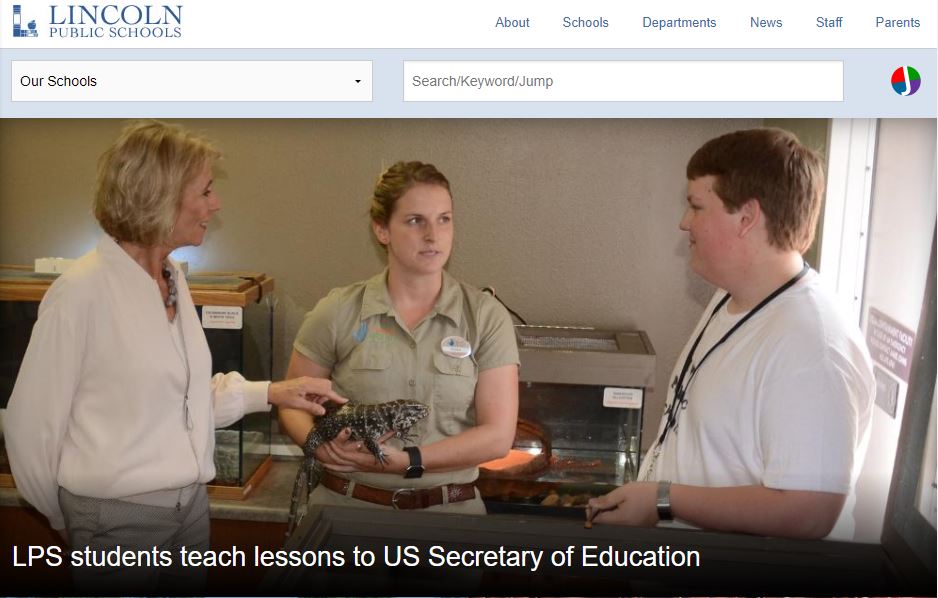
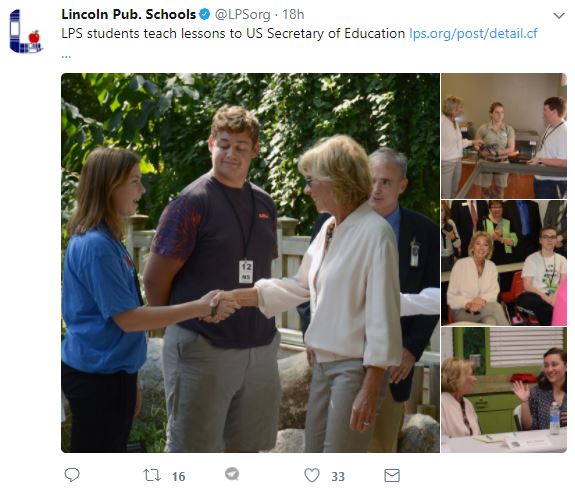

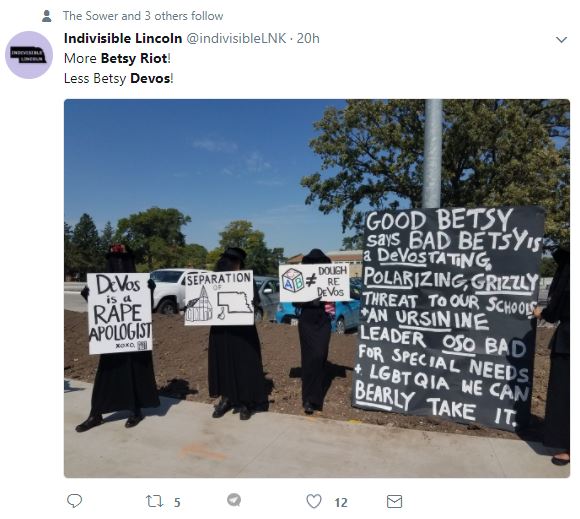
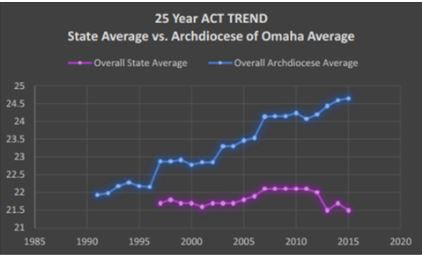
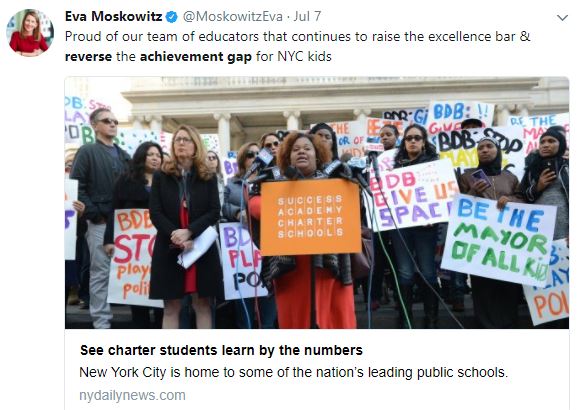

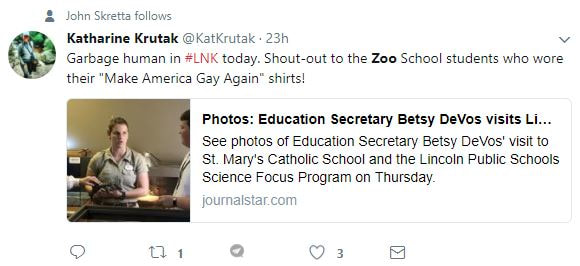

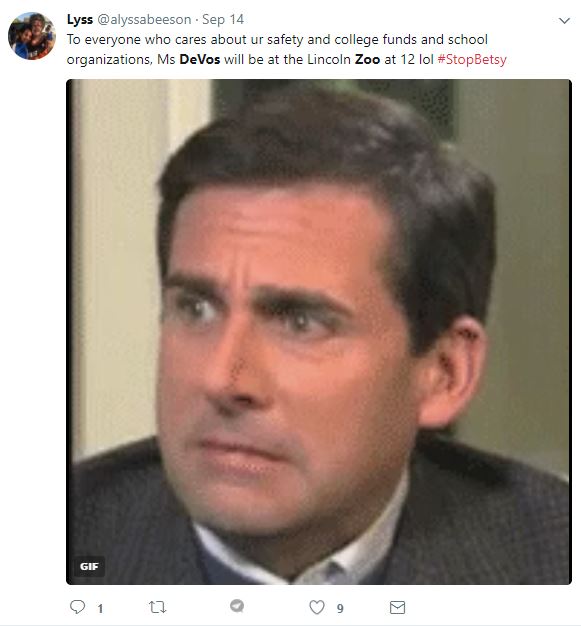
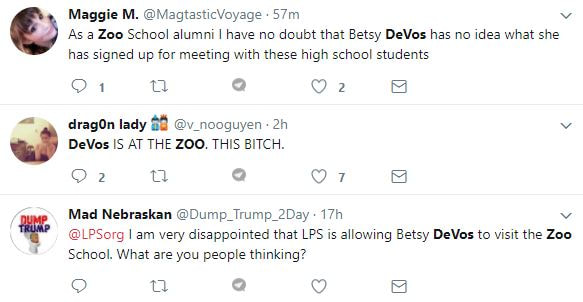
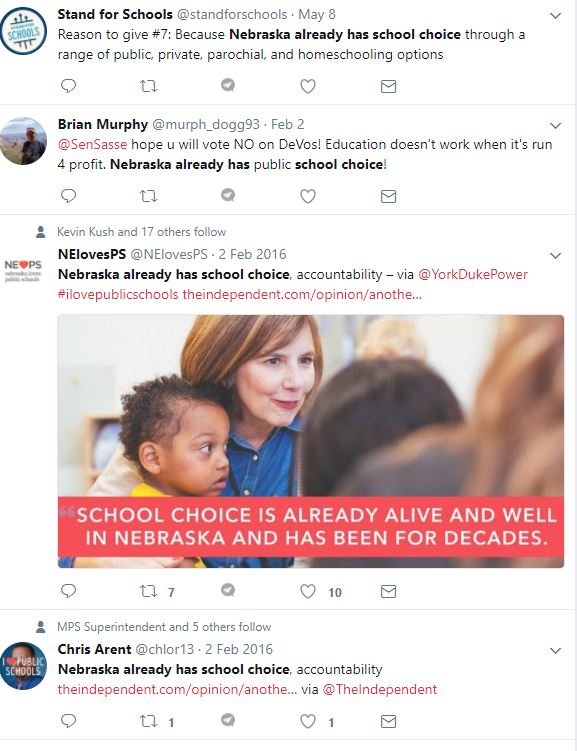
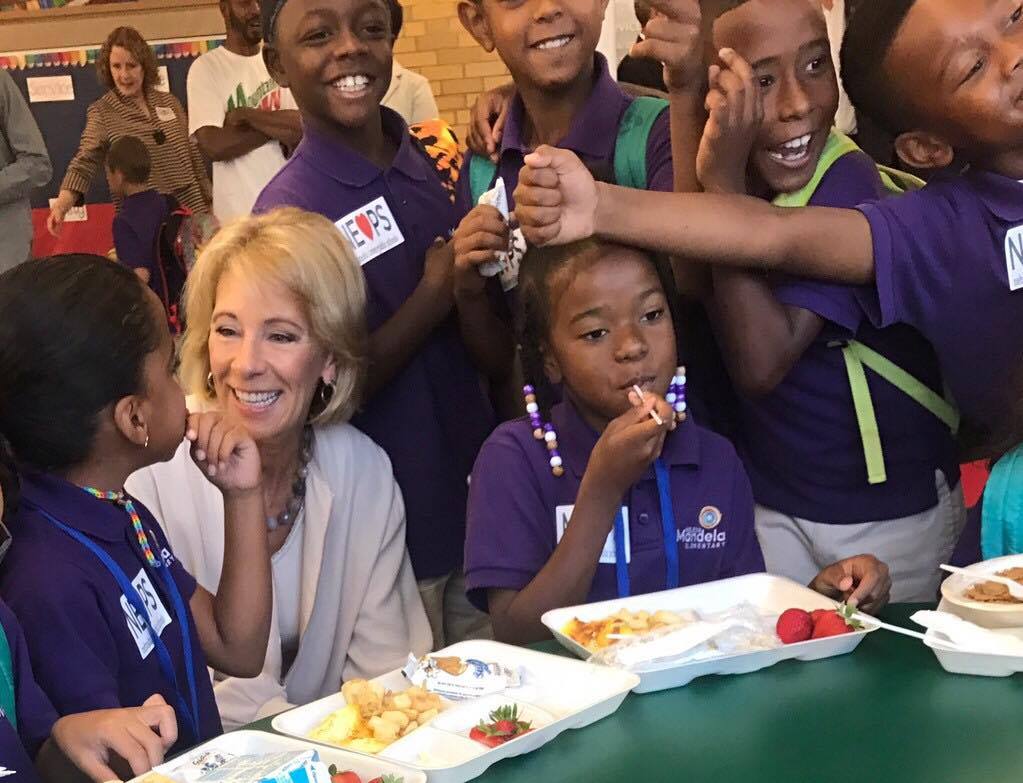
 RSS Feed
RSS Feed